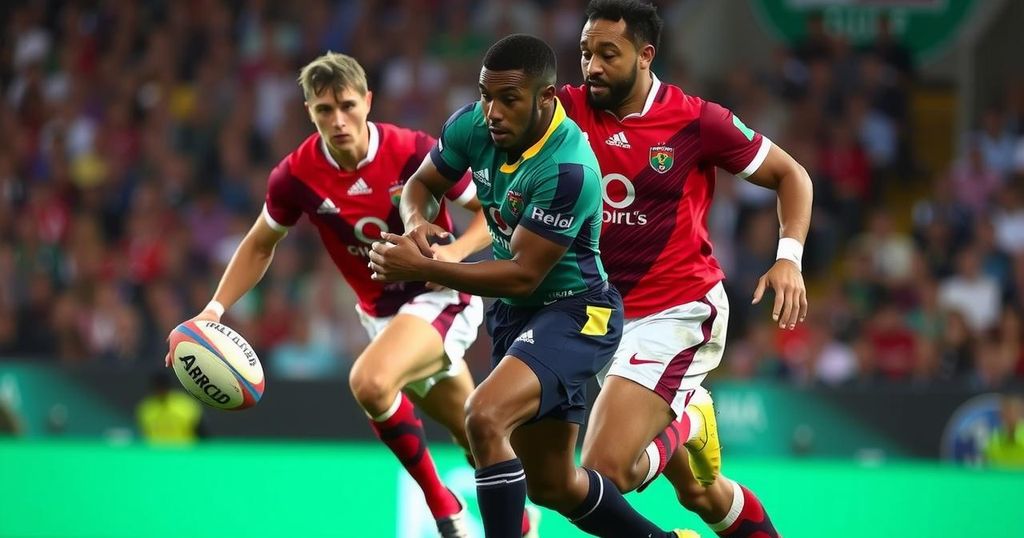Challenges and Prospects of South African Rugby in the Champions Cup

South African rugby teams have struggled in the Champions Cup, recording only one win in six matches this season. Logistical challenges relating to travel and player fitness have hindered performance, leading coaches to call for structural changes to improve competitiveness. Despite these hurdles, there is an optimistic outlook for the future of South African rugby’s participation in European competitions.
South African rugby, once thriving under the auspices of Rassie Erasmus after consecutive World Cup victories, faces a significant challenge as it transitions to the Champions Cup. Thus far, South African teams have registered only one win out of six matches in the tournament, exposing the difficulties associated with travel logistics and team selection. The Sharks and Stormers’ losses highlight the strain of competing in this elite European competition, where both had to field under-strength squads due to the intense travel schedule.
Despite the losses, Stormers coach John Dobson remains optimistic about South Africa’s future in European rugby, emphasizing the necessity for better preparation and integration into tournaments like the Champions Cup. He acknowledged, “As South Africans, we have to be better. We need to get ourselves into a better position”. This sentiment reflects a broader desire for South African franchises to not only compete but to justify their participation in high-stakes tournaments prominently.
The travel-related challenges faced by South African teams could be mitigated by adopting a tour-based structure similar to that used in the URC, as suggested by Dobson and Dan Biggar. This adjustment would allow teams to play multiple games within a shorter timeframe, which could enhance their performance and recovery. Furthermore, maintaining a competitive edge is essential for South African teams to avoid being sidelined should the European rugby landscape change.
There remains a delicate balance concerning the political and logistical implications of South Africa’s involvement in European competitions. Detractors of South African participation express concerns regarding the additional burdens placed on the already established tournaments. As such, it remains imperative for South African rugby to demonstrate its value and ascendancy within the European rugby sphere.
Ultimately, the current downturn presents a pivotal moment for South African rugby and highlights the pressing necessity for adaptation and strategic planning to ensure its competitive future on the global stage.
The article discusses the challenges currently faced by South African rugby teams participating in the Champions Cup, highlighting issues related to logistics and team performance. South Africa’s transition from Super Rugby to the United Rugby Championship and subsequently to European tournaments has been fraught with hurdles, as seen in recent match outcomes. The piece explores perspectives from rugby coaches and players regarding improving competitiveness and maintaining a presence in elite tournaments, alongside discussions on travel logistics and the broader implications of South African participation in European rugby.
To summarize, the South African rugby teams have encountered significant obstacles in the Champions Cup as evidenced by their poor performance and the negative impacts of travel and player selection. Despite these setbacks, coaches advocate for structural changes to improve competitiveness and reaffirm the importance of South Africa’s presence in European rugby. A cooperative approach is crucial for navigating the complex political landscape while ensuring the future success of South African rugby at both the club and international levels.
Original Source: rugby365.com








